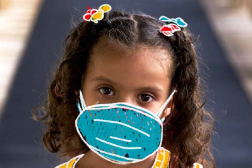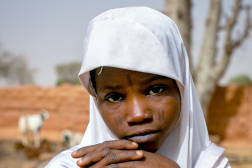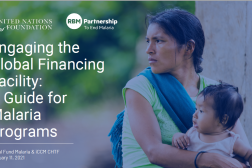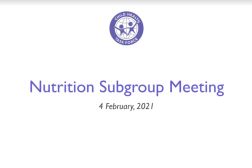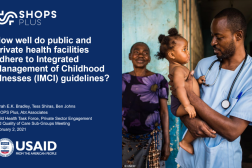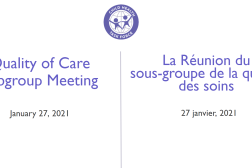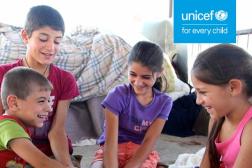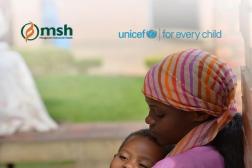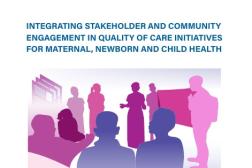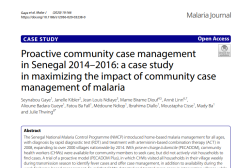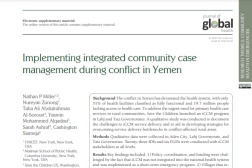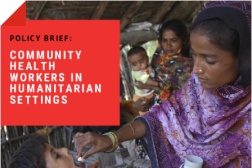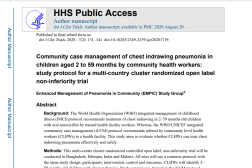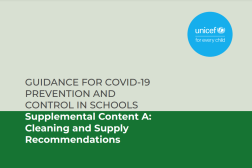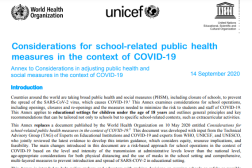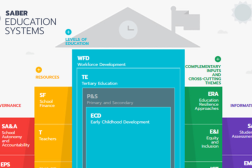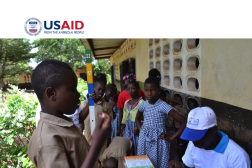Welcome to the Child Health Task Force Resource Library. This database hosts a range of documents from agencies and organizations working on child health programming. When using the search function, please be as specific as possible. More specific search language will return the most appropriate results. Resources are available for download for further reading and can be sent via email or other social media platforms for ease of sharing.
If you have resources related to child health programming that you would like to share through the Child Health Task Force, please reach out through our Contact Us page.
We recommend searching for an author (by name) if you are looking for a specific report. You may also use the filters to refine your search by country, language, etc.
English | 2021
Childhood in the Time of COVID: U.S. Complement to the Global Childhood Report 2021 (Save the Children)
Childhood in the Time of COVID represents the U.S. complement to the Global Childhood Report 2021 published by Save the Children and accessible on our website here. This report ranks all 50 states based on three factors that make American kids' lives increasingly challenging during COVID-19: hunger, lack of tools for remote learning, and trouble making ends meet.
Childhood in the Time of COVID: U.S. Complement to the Global Childhood Report 2021 (Save the Children)2.04 MBReport | English | 2021
The Toughest Places to Be a Child: Global Childhood Report 2021 (Save the Children)
Save the Children's fifth annual Childhood Report compares data from the End of Childhood Index which assesses hardships faced by children across 186 countries. Save the Children believes that every child has a right to childhood, as defined in the UN Convention on the Rights of the Child. The End of Childhood Index tracks "childhood enders," including events such as a chi
The Toughest Places to Be a Child: Global Childhood Report 2021 (Save the Children)4.35 MBPresentation | English | 2021
GFF Opportunities for Malaria iCCM Subgroup Presentation (M. Miles & T. Bracken, RBM) - February 11, 2021
Presentation slides by Tara Bracken and Melody Miles, presented at the iCCM Subgroup webinar hosted on February 11, 2021. The webinar shared highlights from The Global Financing Facility Guide for National Malaria Programs developed by RBM Partnership to End Malaria. The presentation includes background information about the GFF's purpose and function along with opportunities for engagement for malaria & iCCM programs.
GFF Opportunities for Malaria iCCM Subgroup Presentation (M. Miles & T. Bracken, RBM) - February 11, 202110.64 MBPresentation | English | 2021
Subgroup Meeting Slides - February 4, 2021
Presentation slides for the Nutrition subgroup re-launch meeting held on February 4, 2021. These slides present the goal and objectives of the subgroup, along with members' feedback on these objectives.
Subgroup Meeting Slides - February 4, 2021268.92 KBPresentation | English | 2021
IMCI Analysis of Seven Countries Presentation (SHOPS Plus, Abt Associates, USAID) - February 2, 2021
Presentation shared during the webinar titled "Quality of Care for IMCI in Private and Public Health Facilities: Results from a SHOPS Plus analysis in seven countries," co-hosted by the Quality of Care and Private Sector Engagement subgroups on February 2, 2021. The slides were presented by Sarah Bradley, SHOPS Plus Global Research Director, and developed jointly with Tess Shiras and Ben Johns from Abt Associates.
IMCI Analysis of Seven Countries Presentation (SHOPS Plus, Abt Associates, USAID) - February 2, 20212.66 MBPresentation | French | 2021
QoC Subgroup Meeting Presentation - January 27, 2021
Presentation slides in French and English presented at the QoC subgroup meeting on January 27, 2021.
QoC Subgroup Meeting Presentation - January 27, 20211.59 MBGuide | English | 2020
Minimum Quality Standards and Indicators for Community Engagement
This document provides globally established guidance on the contribution of community engagement in development practice as well as humanitarian action. The objective of the standards is to support implementation of high quality, evidence-based community engagement at scale in development and humanitarian contexts.
Tool | English, French | 2020
Community Health Planning and Costing Tool (Version 2.0) Handbook
This tool, and accompanying handbook, is designed to cost community health programs and packages of services. Guidance is provided on how to use results to help assess performance, plan future services, and prepare investment cases for resource mobilization.
Guide | English | 2020
Integrating Stakeholder and Community Engagement in quality of care initiatives for maternal, newborn and child health
This resource provides operational guidance for policy makers and program implementers on how stakeholder and community engagement can be incorporated into quality improvement initiatives for maternal, newborn, and child health, including conducting stakeholder and community mapping and analysis, establishing governance structure, and developing communication and advocacy strategies.
Integrating Stakeholder and Community Engagement in quality of care initiatives for maternal, newborn and child health1023.88 KBJournal Article | English | 2020
Proactive community case management in Senegal 2014–2016
This article in the Malaria Journal presents a case study in maximizing the impact of community case management of malaria through the proactive CCM approach in Senegal.
Recommended Citation: Gaye, S., Kibler, J., Ndiaye, J.L. et al. Proactive community case management in Senegal 2014–2016: a case study in maximizing the impact of community case management of malaria. Malar J 19, 166 (2020). https://doi.org/10.1186/s12936-020-03238-0
Journal Article | English | 2020
Implementing integrated community case management during conflict in Yemen
The conflict in Yemen has devastated the health system, with only 51% of health facilities classified as fully functional and 19.7 million people lacking access to health care. To address the urgent need for primary health care services in rural communities, Save the Children launched an iCCM program in Lahj and Taiz Governorates. A qualitative study was conducted to document the challenges to iCCM service delivery and to aid in developing strategies for overcoming service delivery bottlenecks in conflict-affected rural areas.
Report | English | 2020
Policy Brief: Community Health Workers in Humanitarian Settings
To better understand the barriers and enabling factors for community-based service delivery through CHWs, UNICEF, Save the Children, and the International Rescue Committee have collaborated to conduct a number of studies to document experiences with CHW services in humanitarian settings in low- and middle-income countries. Retrospective case studies were carried out in Guinea, Liberia, and Sierra Leone (Ebola outbreak); South Sudan (conflict); Bangladesh (flooding); and Yemen (conflict).
Journal Article | English | 2020
Community case management of chest indrawing pneumonia in children aged 2 to 59 months by community health workers: study protocol for a multi-country cluster randomized open label non-inferiority trial
This paper presents the protocol used in a study to determine and compare treatment failure rates of enhanced iCCM compared with standard iCCM in children aged 2-59 months of age with chest indrawing pneumonia without general danger signs and/or hypoxaemia.
Guide | English | 2020
Guidance for COVID-19 prevention and control in schools
UNICEF, the World Health Organization and the International Federation of Red Cross and Red Crescent Societies published Guidance for COVID-19 Prevention and Control in Schools, with a series of supplemental content with practical guidance across domains ranging from implementation to the development of child friendly materials. These resources are also available in French, Portuguese, and Spanish.
Guide | English | 2020
Considerations for School-Related Public Health Measures in the Context of COVID-19
WHO, UNICEF and UNESCO have issued updated advice for policymakers and educators on running schools as safe as possible during the COVID-19 pandemic, looking at risk-based approaches for school operations, based on the level and intensity of transmission rates at lower schooling levels; age-appropriate considerations for measures such as physical distancing and masks in schools; and other measures to mitigate against COVID-19 in schools.
Report | English | 2020
World Bank Systems Approach for Better Education Results (SABER)
The Systems Approach for Better Education Results (SABER), launched by the World Bank in 2011, is an initiative to produce comparative data and knowledge on education policies and institutions, with the aim of helping countries systematically strengthen their education systems and the ultimate goal of promoting Learning for All.
Guide | English | 2020
WHO/UNESCO Health Promoting Schools
Building from WHO's Global School Health Initiative, launched in 1995, WHO and UNESCO developed global standards and indicators as well as implementation guidance for assessing health promoting schools: environments that constantly strengthen their capacities as healthy settings for living, learning and working.
Report | English | 2020
Human Capital Investments: The Case for Education and Health in Sub-Saharan Africa
This USAID white paper, published in 2020, considers opportunities to reach school-age children and adolescents in Africa given the young demographic profile of the region.
Tool | English | 2020
Joint WFP and UNICEF Multisectoral Checklist for School Reopening and School based Nutrition in the context of COVID-19
The World Food Programme and UNICEF Eastern and Southern Africa Regional Offices jointly published a non-exhaustive list of recommended multi-sectoral actions to consider as part of the short and longer-term planning for and implementation of school reopening and school-based nutrition in the context of COVID-19.
Journal Article | English | 2020
Preventive malaria treatment among school-aged children in sub-Saharan Africa: a systematic review and meta-analyses
Journal article published in the Lancet on December 1, 2020.

